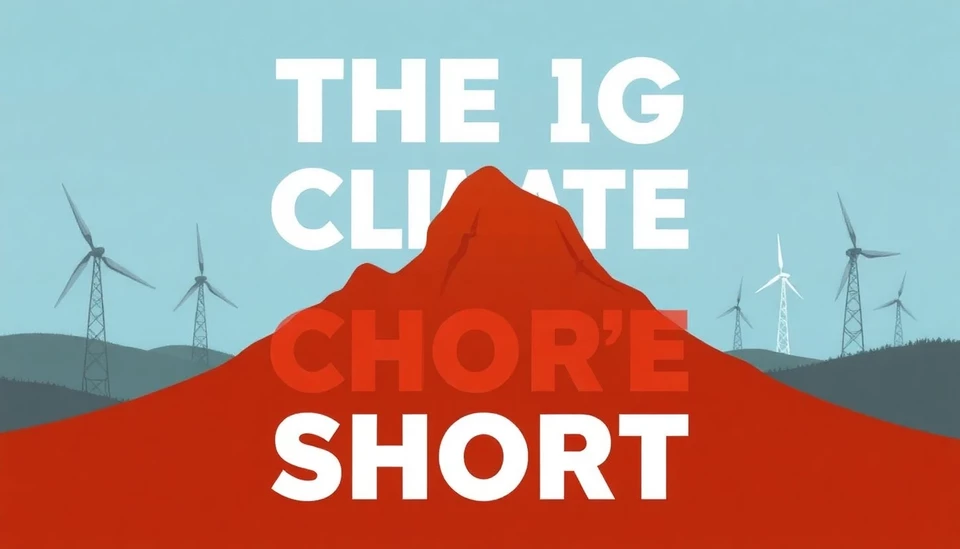
As the world increasingly accelerates toward sustainable energy solutions, a pivotal shift is taking place in the investment landscape. Investors are grappling with the realization that the traditional energy sector could face serious risks, as global efforts to combat climate change ramp up. This shift, dubbed "The Big Climate Short," highlights the growing potential for financial turmoil in fossil fuel markets amidst the accelerating transition to renewable energy.
Recent analyses indicate that the financial implications of climate change are becoming more precarious. With governments worldwide making ambitious commitments to decarbonize their economies, the demand for fossil fuels may plummet in the coming decades. Analysts fear that this transition could initiate a significant devaluation of fossil fuel assets, leaving investors who are heavily invested in oil and gas facing substantial losses.
In the face of this pressing challenge, some investors are beginning to reconsider their strategies. While many have previously capitalized on fossil fuel investments, there is a notable shift toward sustainable alternatives. A growing number of institutional investors are now committing to divesting from oil and gas companies, redirecting their capital towards cleaner energy initiatives. This trend underscores a widespread recognition that climate change is not just an environmental concern but a pressing financial one that requires urgent attention and action.
The concept of "stranded assets"—where fossil fuel reserves remain untapped due to regulatory, technological, or market forces—has started to gain traction. A significant portion of the fossil fuel industry faces potential obsolescence, which in turn could affect global energy prices and market stability. With analysts warning of the possible economic fallout from a delayed energy transition, there is an increasing sense that the near-term future could be fraught with challenges for traditional energy sources.
Moreover, global investors are also starting to embrace green technologies, such as wind, solar, and battery systems, which are becoming increasingly competitive with fossil fuels. This shift is not just a response to regulatory pressures; it is also a recognition of the long-term benefits that renewable energy technologies can offer. The rapidly falling costs of clean energy solutions have paved the way for a seismic shift in how energy is produced and consumed around the world.
The possibility of regulatory changes further complicates the outlook for traditional energy investments. Governments worldwide are implementing more stringent environmental policies, which could ultimately limit the future profitability of fossil fuel extraction and consumption. Companies that fail to adapt to this evolving landscape may find themselves in precarious positions, leading to further investment shortfalls and market instability.
In conclusion, the transition from fossil fuels to renewable energy is no longer a distant prospect; it is an impending reality that investors cannot afford to ignore. The big climate short signifies a crucial moment for financial markets that will likely be defined by a new paradigm where sustainability is not merely an option, but a requisite for long-term success. As the dialogue continues, the stakes are becoming clearer for all parties involved, from government to investor to consumer.
#ClimateChange #SustainableInvesting #FossilFuels #RenewableEnergy #InvestmentTrends #EnergyTransition #GreenEconomy
Author: Peter Collins




